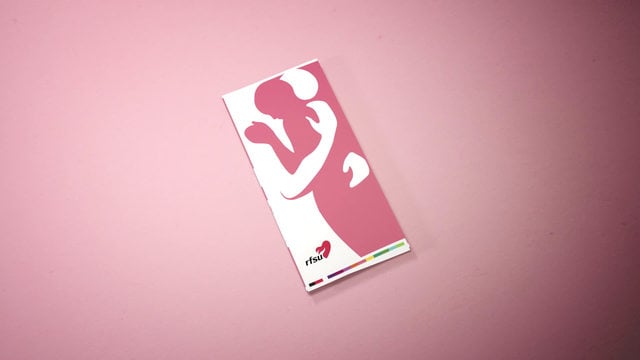
Menopause
View as text
RFSU provides information about menopause
Menopause, or the menopausal transition, is the period in life when you have your last period and can no longer become pregnant. While the timing varies, it usually occurs when you are between 45 and 55 years old and can last for anywhere from six months to several years. Some people notice nothing or feel better than before, while others have trouble and may feel very poorly for a longer period of time.
Since birth, the ovaries have contained a huge number of immature eggs. Some of the eggs mature and can be fertilized. When they are not fertilized, you get your period. Menopause—the last menstrual period—happens when you run out of eggs. Perimenopause begins one or more years before menopause. Though it does not happen in everyone, irregular periods are one common sign.
During menopause, the hormone estrogen declines and remains low for the rest of your life. When it declines, it can cause symptoms – heavy sweating, hot flashes and chills are common. It is also more common to feel like you have to pee often, and to have problems with urine leakage during exertion, for example when you cough, sneeze, laugh or jump. Kegel exercises can help strengthen the musculature and reduce problems.
Trouble sleeping, sudden mood swings, feeling low, and depression are common. The physical change affects most people emotionally. Feeling sad and unmotivated for a longer period of time is called depression and it is important to get help, for example at a medical center.
During menopause, the mucous membranes of the genitals become drier and more sensitive. This can lead to irritation and itchiness. There are products to moisturize the vagina and you can use lubricant during sex to increase pleasure and reduce the risk of pain. Take care of your genitals. Only wash the outer parts using mild soap. Between the labia, you can wash using unscented oil and lukewarm water. Once per day is enough.
Because of these symptoms, some people feel less sexual desire, while some feel more desire during menopause.
Not having to worry about pregnancy can allow you to focus on excitement and pleasure. Not having to bother with contraceptives and no longer having a period or menstrual pain can also feel great.
Even though menopause can be a difficult time, some things can improve how you feel. Exercise, eating well and getting enough sleep can have a positive effect on your well-being. Relaxation exercises can also improve how you feel.
Menopause symptoms are common. If you are having trouble or questions, then seek out support and help at a medical center, midwifery clinic or from a gynecologist.
About the video
Menopause is the period when a woman stops getting periods and can no longer get pregnant. This video describes what happens to your body and your mood during menopause. You’ll also learn how to ease common problems. for example if you sweat a lot or experience vaginal dryness.
Questions to think about after the video
- Is there anything in the video that surprises you?
- Menopause affects everyone differently. What can a person do to feel better during menopause? Where can a person turn to get help if they have difficulties?
- Sexual desire can increase or decrease during menopause. Getting older doesn’t have to mean that a person’s sex life is over. What can a person do to enjoy sex more if they have problems with vaginal dryness?
Do you want to talk about the video?
Talking with someone about the video can feel important and give new insights. You might have questions and thoughts that are good to discuss with others rather than just thinking about them on your own. By sharing and listening to each other, we can get support and learn together.
Would you like to start a group and talk about the videos? Here are some tips about what you can do.
